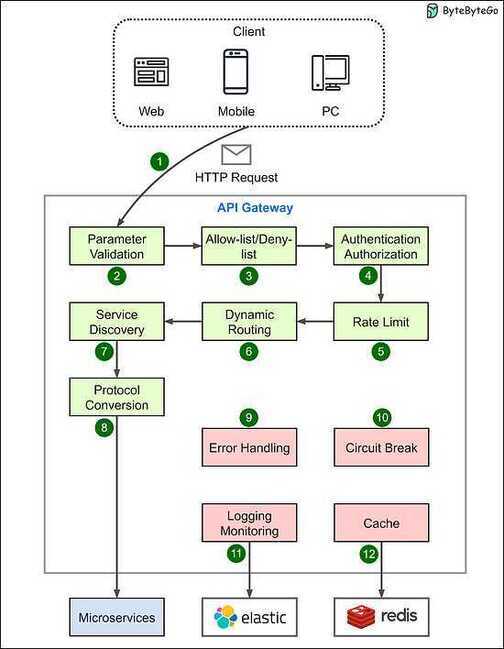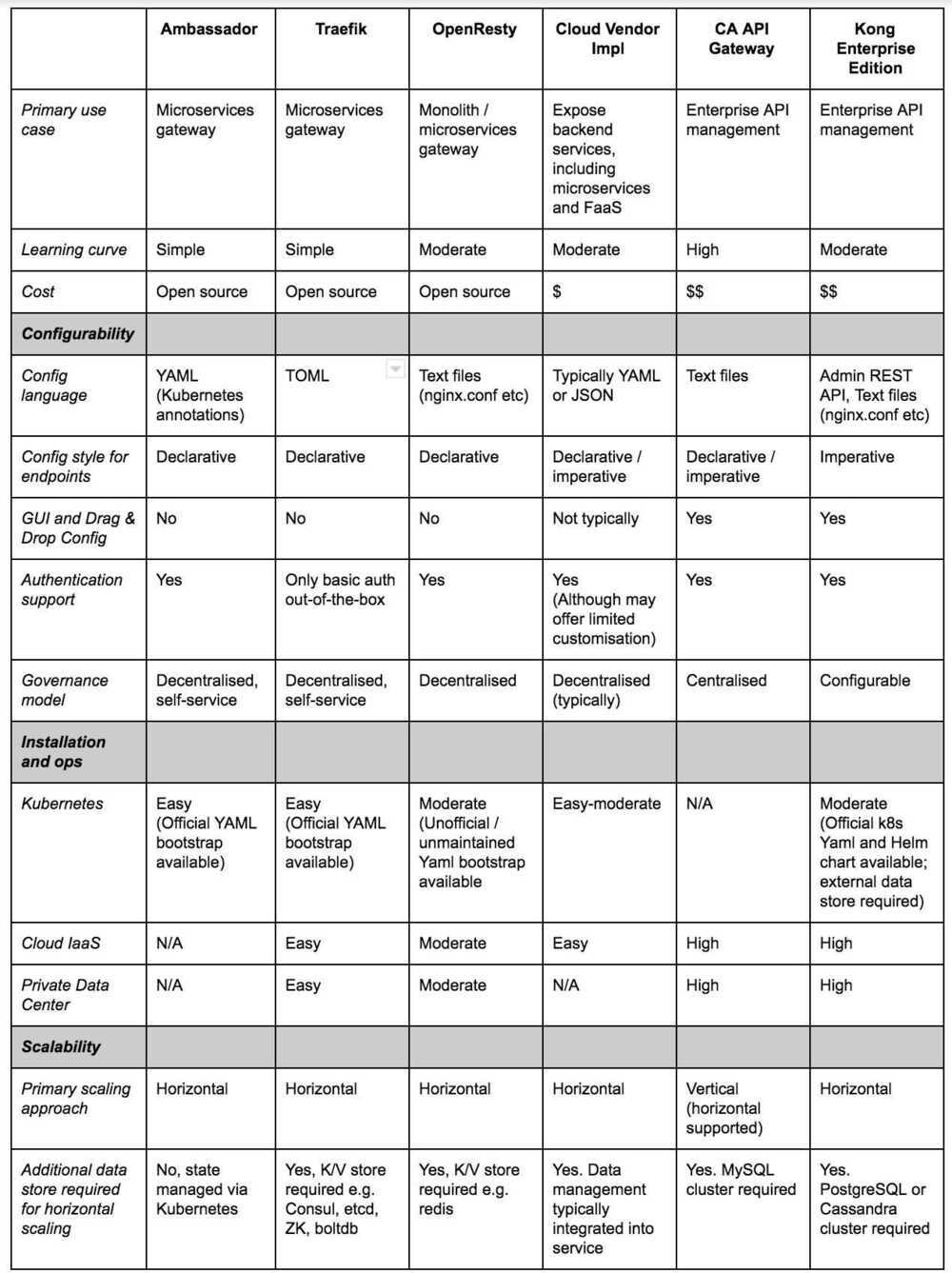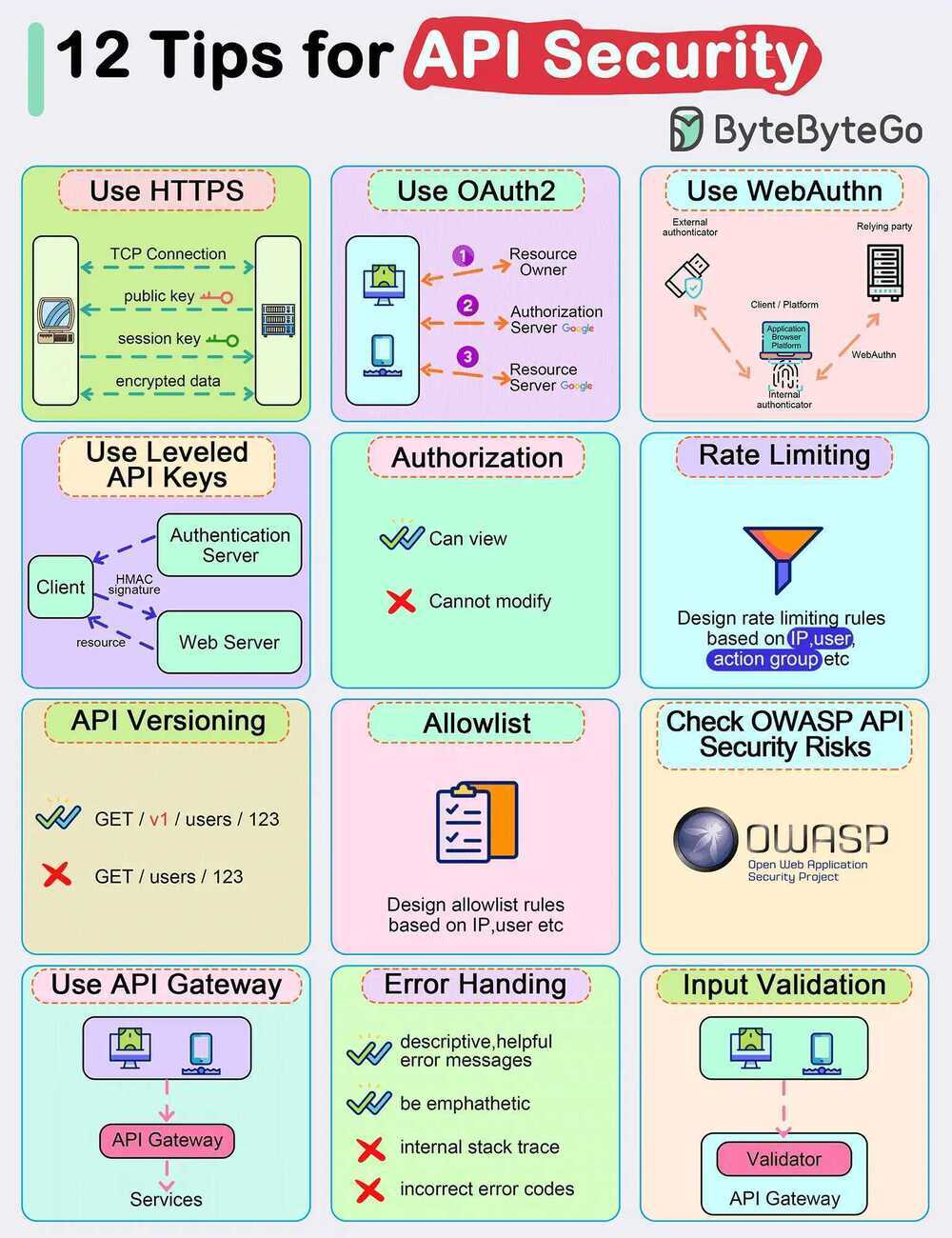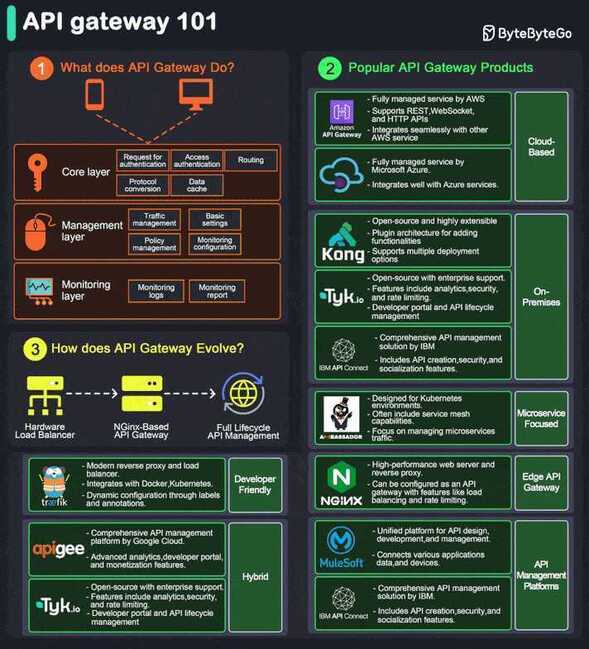API Gateway
API Design
Designing APIs: Less Data is More || Damir Svrtan
Features
- Authentication
- Authorization
- Security
- SSL termination
- DDOS protection / Throttling
- Adaptor (that will consolidate all information from all services and return as one response)
- Serve static content
- Cache responses
- Request routing
- Router & Load Balancer
- A/B Testing
- Canary Testing
- Protocol Adapter
- Monitoring all api's performance
- Rate Limiting
- Expose as API service

Using an API gateway has the following benefits
- Insulates the clients from how the application is partitioned into microservices
- Insulates the clients from the problem of determining the locations of service instances
- Provides the optimal API for each client
- Reduces the number of requests/roundtrips. For example, the API gateway enables clients to retrieve data from multiple services with a single round-trip. Fewer requests also means less overhead and improves the user experience. An API gateway is essential for mobile applications.
- Simplifies the client by moving logic for calling multiple services from the client to API gateway
- Translates from a "standard" public web-friendly API protocol to whatever protocols are used internally
The API gateway pattern has some drawbacks
- Increased complexity - the API gateway is yet another moving part that must be developed, deployed and managed
- Increased response time due to the additional network hop through the API gateway - however, for most applications the cost of an extra roundtrip is insignificant.
Tools
-
Cloud
- Apigee
- Amazon API Gateway
- Azure API Gateway
- Google cloud endpoints
- WSO2 API Manager
-
Self Managed
- Apache
- HAProxy
- Nginx
- Spring cloud gateway
- https://apisix.apache.org
API Gateways
Gloo
The Hybrid Application Gateway built on top of Envoy Gloo is a feature-rich, Kubernetes-native ingress controller, and next-generation API gateway. Gloo is exceptional in its function-level routing; its support for legacy apps, microservices and serverless; its discovery capabilities; its numerous features; and its tight integration with leading open-source projects. Gloo is uniquely designed to support hybrid applications, in which multiple technologies, architectures, protocols, and clouds can coexist
https://github.com/solo-io/gloo
Ambassador
Ambassador is an open source Kubernetes-native API Gateway built on Envoy, designed for microservices. Ambassador essentially serves as an Envoy ingress controller, but with many more features. Key features include:
- Self-service configuration, via Kubernetes annotations
- First class gRPC and HTTP/2 support
- Support for CORS, timeouts, weighted round robin (canary), rate limiting
- Istio integration
- Authentication
- Robust TLS support, including TLS client-certificate authentication
https://github.com/datawire/ambassador

https://microservices.io/patterns/apigateway.html
Rate Limiting Service
https://blog.christianposta.com/microservices/do-i-need-an-api-gateway-if-i-have-a-service-mesh
https://developer.ibm.com/apiconnect/2018/11/13/service-mesh-vs-api-management
https://blog.christianposta.com/microservices/api-gateways-are-going-through-an-identity-crisis
https://konghq.com/blog/the-difference-between-api-gateways-and-service-mesh
API Platform | Tailcall
A cloud native solution to streamline API management across edge, middle, and service
GitHub - tailcallhq/tailcall: A high-performance no-code GraphQL backend
API Security
- Use HTTPS
- Use OAuth2
- Use WebAuthn
- Use Leveled API Keys
- Authorization
- Rate Limiting
- API Versioning
- Whitelisting
- Check OWASP API Security Risks
- Use API Gateway
- Error Handling
- Input Validation


API Gateway - ByteByteGo Newsletter